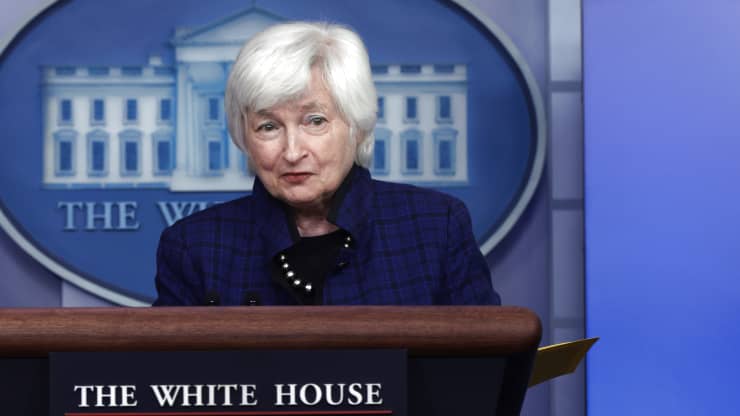U.S. Treasury Secretary Janet Yellen called on Friday for better international coordination on carbon-cutting policies to avoid trade frictions, days before the European Union is due to unveil a controversial carbon border tax.

Source: Reuters
The EU’s carbon border adjustment mechanism (CBAM) would impose levies on the carbon content of imported goods in an effort to discourage “carbon leakage”, the transfer of production to countries with less onerous emission restrictions.
Speaking as G20 finance ministers met in Venice, Yellen said there were multiple paths to achieve the emissions cuts needed to tackle climate change besides explicit carbon-pricing.
“It’s important that any carbon border adjustment system focus on the degree to which a country’s climate policies reduce emissions, and hence carbon content, rather than focus only on explicit carbon pricing,” Yellen told a climate tax forum.
“Recognizing the different paths countries are taking to address climate change could help avoid policy measures to address carbon leakage that inadvertently create new international risks and spillovers,” she added.
Yellen said countries in the club of G20 large economies would need to make significant public and private investments and take “difficult economic decisions” to achieve the goals of decarbonizing their economies by mid-century.
Approaches could include regulatory restrictions and emissions standards, direct public investments, public subsidies to incentivize private investments, and carbon markets. The Biden administration is pursuing major public investments to decarbonize the U.S. power and transportation sectors, she said.
This is different from the EU’s plans to unveil on July 14 the world’s first levy on carbon imports as part of a package of legislation to cut net greenhouse gas emissions by 55% by 2030 from 1990 levels.
Levies will reflect benchmark prices on the EU’s emissions trading system (ETS),the largest carbon market in the world. But EU trading partners doubt the scheme will reduce emissions and think it could act as a protectionist tool.
French Finance Minister Bruno Le Maire, speaking at the same G20 forum, called for a global minimum price for carbon emissions in the absence of a single global price. “I think that a global floor could be a very good starting point to have all the G20 member countries committing on carbon pricing,” Le Maire said.
COST BURDEN ON POOR
Developing countries expressed caution in proceeding with a one-size-fits all approach, noting that the economic burden for low-income people will be high.
Mexican Finance Minister Arturo Herrera said, for example, that the gasoline cost burden for Mexican families, of which more than half live below the poverty line, is 5% of disposable income, more than twice the 2% level in the United States.
A cornerstone of Mexico’s approach to emissions reduction will be more investment in clean public transportation, Herrera said.
Yellen suggested coordination such as taking a common approach to climate-related data and financial disclosures through groups like the Financial Stability Board, and using the G20 finance track’s Sustainable Finance Working Group as a forum to discussed proposed climate pricing measures.
She also said the Biden administration was still considering a range of other carbon reduction policies, including some that would put an “implicit price” on carbon emissions, and provide a point of comparison to other countries’ carbon prices.
She did not provide details of these measures but Biden administration officials have said they would consider carbon border adjustment measures.

